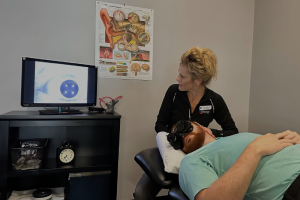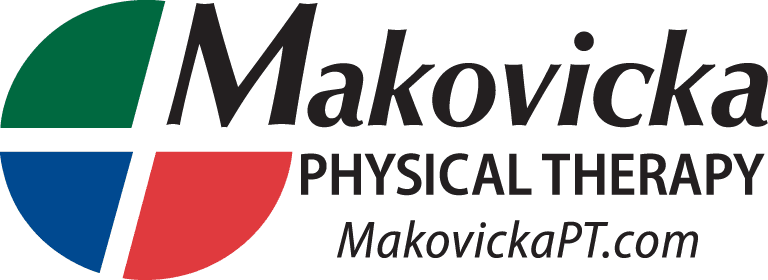
Conditions Treated
Understanding Vestibular Disorders: How Makovicka Physical Therapy Can Help
Vestibular disorders occur when an injury or illness affects the inner ear and balance system—also known as the vestibular system. If you’re experiencing dizziness, imbalance, or unexplained vertigo, you’re not alone—and you’re not without options.
At Makovicka Physical Therapy, our trained vestibular specialists in Lincoln, Omaha, and surrounding areas are here to guide you through recovery and help you feel like yourself again. Below are answers to common questions and helpful insights into these conditions.
What Are Dizziness and Vertigo?
Dizziness can feel like:
- Lightheadedness
- Rocking or floating sensations
- Feeling “off” or disconnected
Vertigo is more specific; it’s the illusion that you or your surroundings are spinning, whirling, or moving when they’re not.
Why Am I Experiencing Dizziness or Vertigo?
There are many potential causes, but when it comes to the inner ear (vestibular system), the most common vestibular disorders include:
- BPPV (Benign Paroxysmal Positional Vertigo)
- Vestibular Neuritis or Labyrinthitis
- Vestibular Migraines
- Meniere’s Disease
- Age-related dizziness or imbalance
- Concussions/Traumatic Brain Injury (TBI)
- Cervicogenic Dizziness (originating from neck issues)
What Other Symptoms Might I Experience?
In addition to dizziness and vertigo, you may experience:
- Balance problems or unsteadiness
- Difficulty walking
- Trouble keeping your eyes focused (gaze instability)
- Mental fog or fatigue
- Sensitivity to motion
- Ear fullness or ringing (tinnitus)
- Vision or hearing challenges
- Nausea or vomiting
- Anxiety or depression
Why Is Balance So Important?
Good balance depends on three key systems working together:
- Vision (what your eyes see)
- Proprioception (feedback from muscles and joints)
- Vestibular system (inner ear balance organs)
When one or more of these systems aren’t working correctly, you may feel unsteady—and your risk of falling increases.
How Can Physical Therapy Help?
Our vestibular-trained physical therapists start by taking a detailed health history and performing a comprehensive evaluation. Sometimes, this may include video goggles that track eye movements to help pinpoint the root cause of your symptoms.
From there, we develop a personalized treatment plan tailored to your needs and goals. Vestibular rehabilitation therapy is designed to help you:
- Improving balance and mobility
- Reduce dizziness and motion sensitivity
- Stabilize vision and gaze
- Build strength and endurance
- Return to your normal activities, what we call getting Back in The Game!
What Types of Therapy Activities Are Used?
Vestibular physical therapy may include:
- Patient education and self-management tools
- Gait (walking) and balance training
- Eye and head movement exercises
- Habituation exercises to reduce motion sensitivity
- Repositioning maneuvers (especially for BPPV) to move displaced inner ear crystals
- Neck treatment if symptoms are cervicogenic
- Strengthening and endurance activities
- A personalized home exercise program
- Coordination with your primary care provider, ENT, neurologist, or audiologist to ensure a comprehensive care plan
Ready to Take the Next Step?
Don’t let dizziness, vertigo, or imbalance keep you from enjoying life. With many convenient locations in the metro Omaha area, Lincoln, and surrounding communities, help is nearby. Contact Makovicka Physical Therapy today to learn more about our Vestibular Services—and take the first step toward feeling balanced, steady, and confident again.
Benefits of Vestibular Physical Therapy
Reduces dizziness
Restores functional mobility
Improves walking safety
Customized treatment plan to help patients reach their goals
Improve gaze stability
